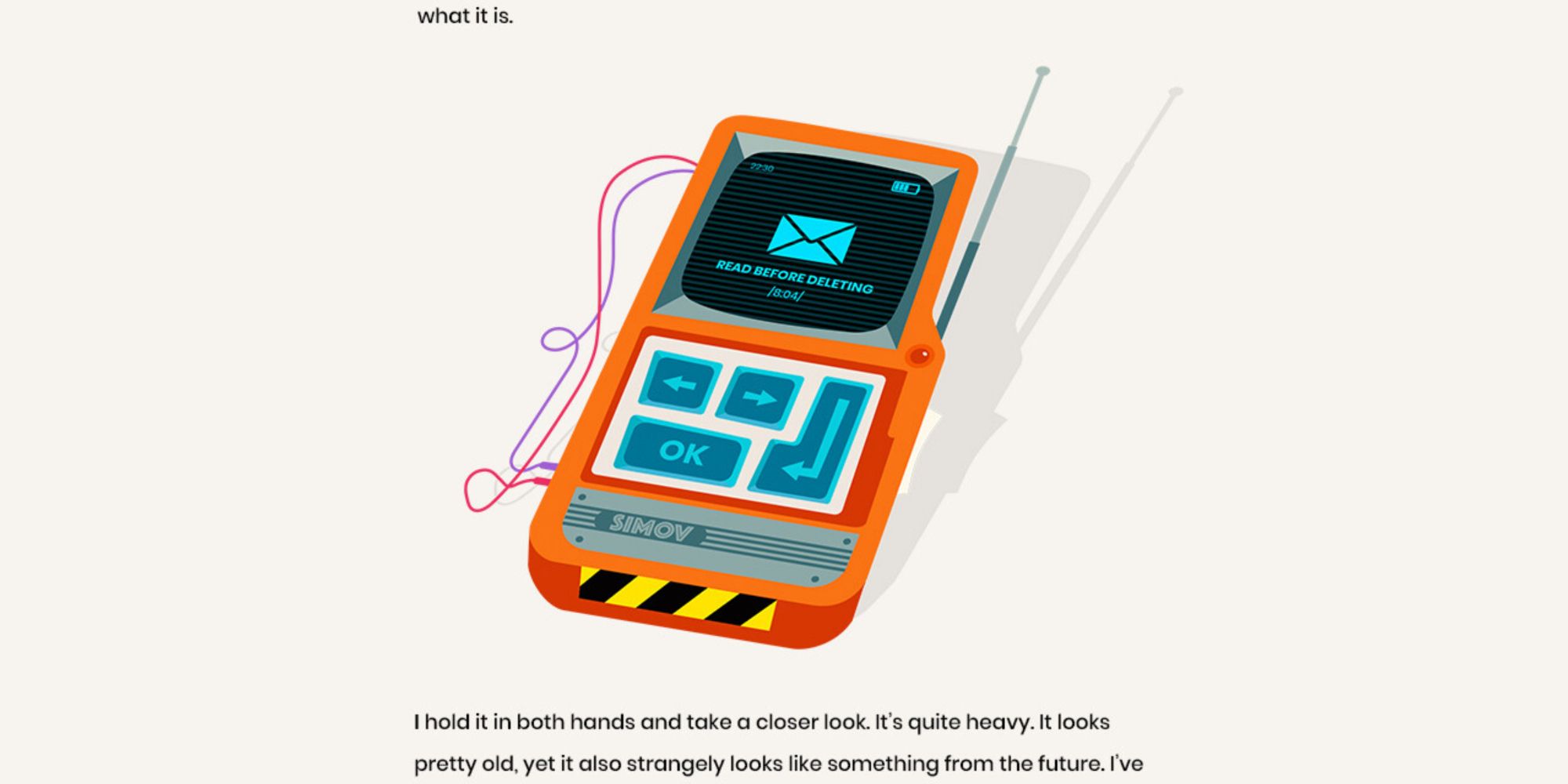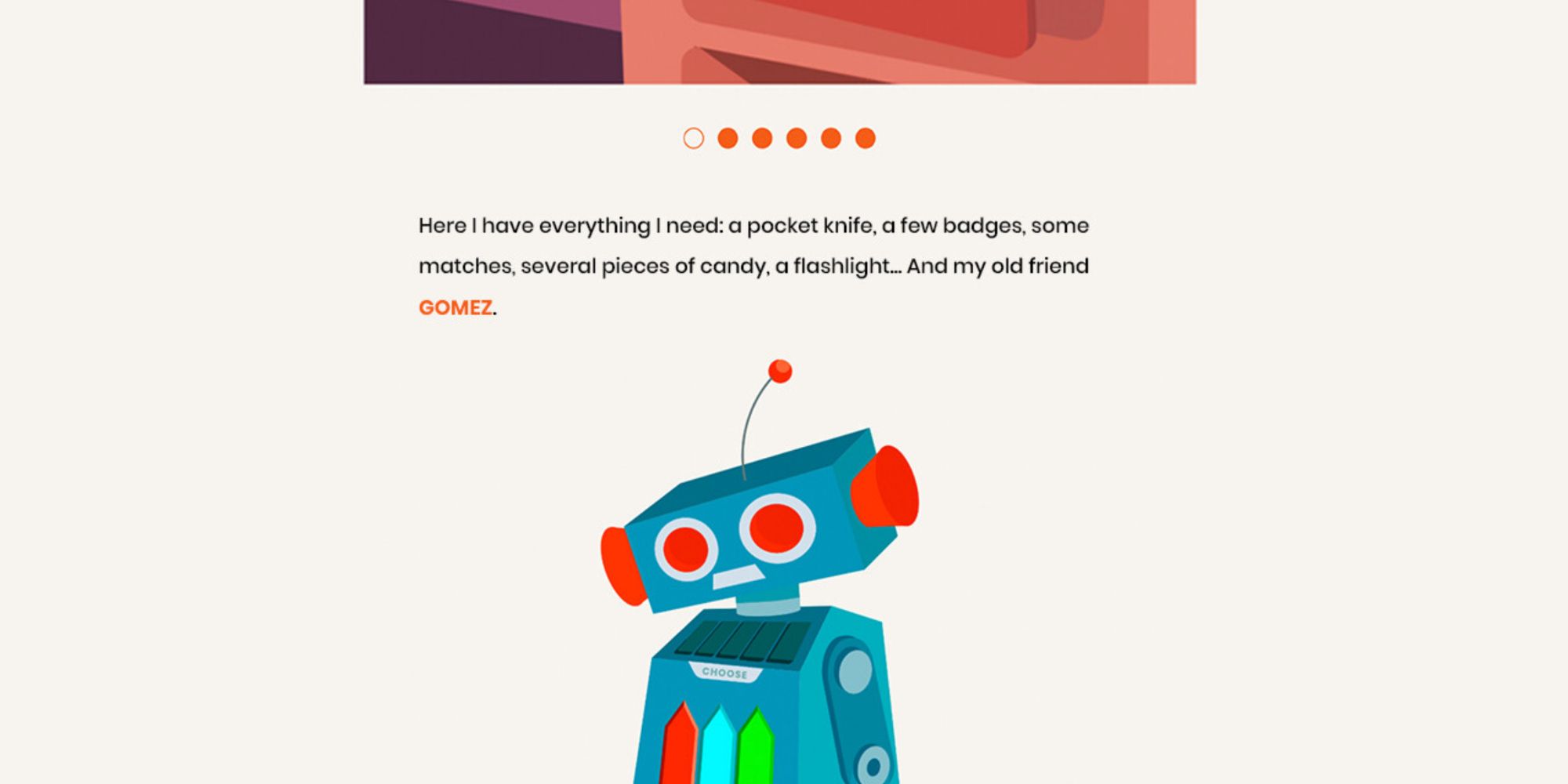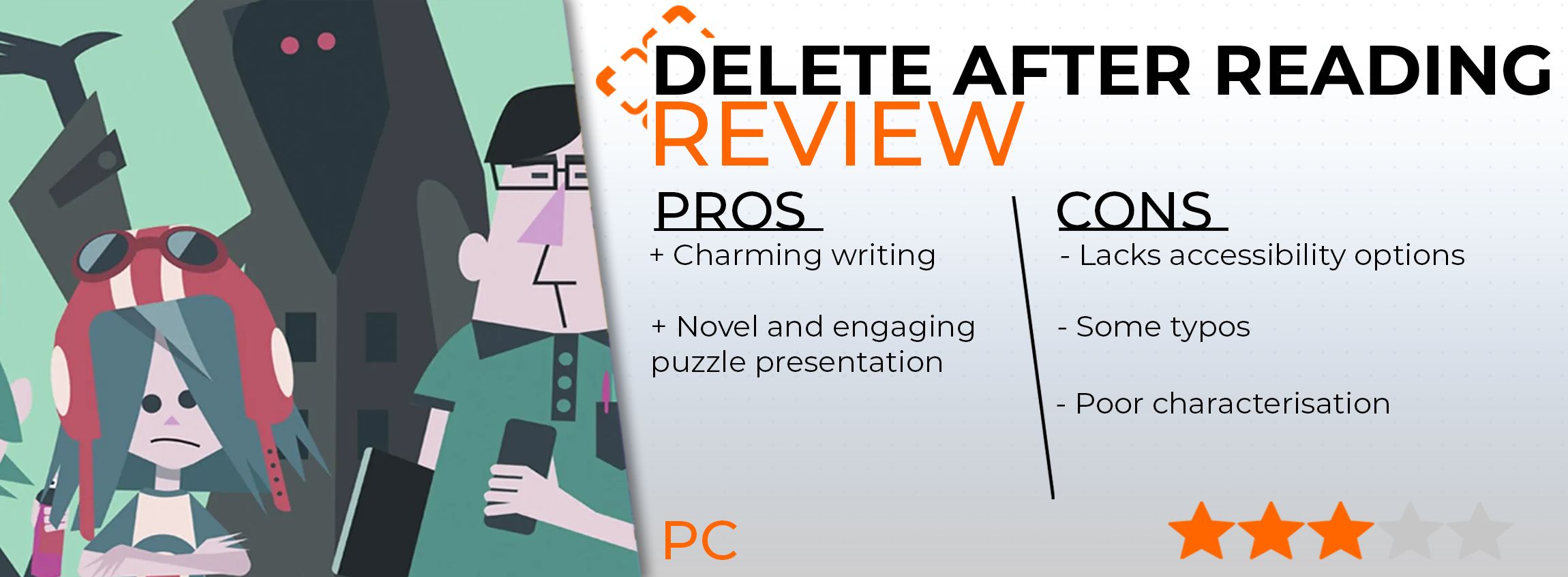Adventure games seem to be going through a bit of a resurgence at the moment, with the indie scene blossoming with gripping new stories filled with engaging puzzles to wrap your brain around. Sometimes these are very traditional offerings, harkening back to the nostalgic days of verb walls and inventories, and sometimes, risks are taken and the genre is given an experimental shakeup.
Delete After Reading brands itself a text-based narrative adventure, and that certainly comes across in the presentation. Playing Delete After Reading deliberately evokes the feeling of reading a children’s book, filled with long-form prose that you scroll through, laced with bright and colourful pictures. The game turns reading into a gameplay mechanic, forcing you to look for bolded or coloured words to click on to progress. This is played around with in fun ways - at one point, you have to click the word ‘pull’ repeatedly to move a wardrobe, mimicking the effort that the player character has to put into the action. This mechanic is central to the puzzles of the game, which have you analysing not only the text and images throughout, but the text’s formatting to glean hints.
Sometimes, this interesting mechanic is to the game’s detriment. One of the final clickable words in the whole game is supposed to be ‘climb’ as the protagonist climbs over a fence. Instead, though, it’s spelled ‘climp,’ which had me scouring the rest of the passage for a correctly-spelled version, thinking I was about to fall into a sneaky trap. Alas, no, ‘twas a simple typo, which feels like a huge oversight for a text-based puzzle game. These sorts of presentation errors are something I noticed a few times throughout Delete After Reading, which is a shame considering the fact that the text is the most important part of a text-based adventure and that it’s a very short game - I had around an hour and a half’s playtime at the end.
The puzzles themselves are pretty great, for how few of them there are. The escape room inspiration is plain - there are safes to crack and codes to decipher - and while obviously geared towards a younger audience, they remain fun brainteasers for the more experienced. The exceptions would be the ‘puzzles’ found in the final chapter, which is more a gauntlet of reactions-based tasks set to an incredibly grating soundtrack, which is a total departure from the tone and quality of the rest of the game and also highlights my biggest problem with the game: the lack of accessibility.
Multiple chapters force you to listen to audio tracks, whether for exposition or as part of a puzzle. There are no subtitles provided and no alternatives for those who are hard of hearing or simply don’t have the sound on. Additionally, while it’s a minor complaint, the game feels like it’s built primarily for mobile devices with far less regard for desktop playability. Scrolling up and down through large chapters looking for clues or simply to engage with puzzles is an ache - a scroll bar or the ability to swipe as you would with a mobile would have been greatly appreciated.
Conversely, the game’s greatest strength is its writing. Delete After Reading has a charming style that evokes the ‘supernatural adventure with kid hero’ genre of children’s books really well. Growing up, I loved the Molly Moon books, and this game’s writing is incredibly reminiscent of that era of children’s literature. The game is written in first-person, and the protagonist is a young boy whose idea of the worst day ever is being bad at football and having cauliflower cheese for lunch - the writing captures that brand of petulant childishness perfectly. The plot moves forward at erratic speeds, the dialogue is expressive and flows well, and while the characters don’t get explored much due to the game’s short runtime, the world built around them is compelling.
Delete After Reading is short but sweet and plays around with some interesting ideas in terms of how interactive an interactive fiction experience can be. While the puzzles aren’t anything groundbreaking, the way they’re presented keeps things feeling very fresh. Overall, the game is a fun time, the perfect way to introduce a kiddo to adventure games or waste away an afternoon trying something new.
Score: 3/5. A game code was provided by the publisher.




